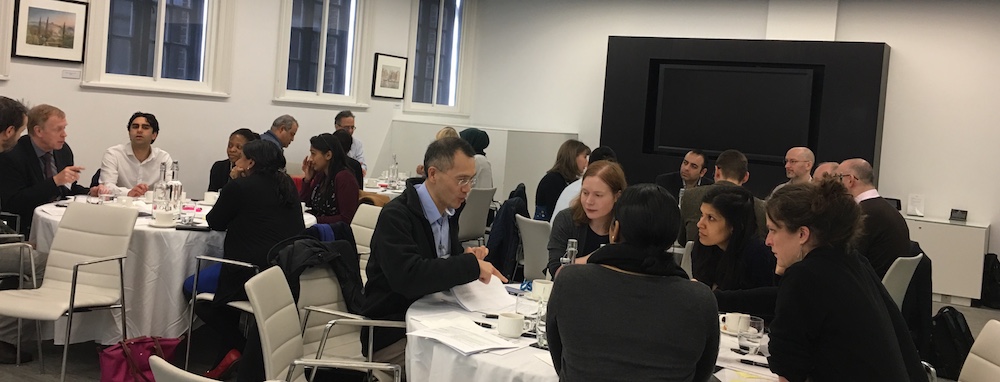
It has been a long, hot summer for general practitioners – in more ways than one. Not only have they been dealing with the usual casualties of a heatwave, they have also been the focus of heated debate on issues such as “a constantly escalating workload” and a lack of GP appointments here in Wales.
Many of the major contributing factors to these crises will be familiar: chiefly time, money and people. In Wales, investment in general practice has fallen to about 8% of the NHS Wales budget, somewhat short of the 11% that was available to general practice 10 or more years ago. Over this time, investment in specialist care has increased, while numbers of GPs have fallen. Removal of GP 24 hour responsibility in 2004, and poor funding decisions, has resulted in a largely privatised out-of-hours service that is chronically understaffed and overstretched.
While we must argue for more money and more resources to redress these imbalances, we must also consider how we might refocus what we currently have to better serve our communities and their needs. Better integration of health and social care, improved medical training that is broader based incorporating a better understood and more inclusive ‘one health’ approach, and adoption of emerging health and communication digital technologies may enable us to provide primary care that puts our communities first.
Moving from vision to reality
The people of Wales live in communities and their individual health and well-being is clearly linked to the health and well-being of their neighbourhoods. It has been demonstrated that national healthcare systems that are primary care led are cost-effective. Key features of a national primary care-led healthcare system include: being the first point of contact for most health problems, co-ordination of care for individuals, but particularly that it provides holistic, comprehensive longitudinal care delivered in the context of family and community.
The Welsh Government must promote and protect positive health in a much more personalised way.
Research from Wales has shown that living in deprived neighbourhoods, where there is poor quality housing, poor access to amenities, and where neighbourhood safety and behavior is an issue, will all affect physical and mental health. The Welsh Government must promote and protect positive health in a much more personalised way, working in collaboration with identified communities across Wales. NHS Wales (and indeed the whole UK NHS) needs to re-design itself to become much more engaged in the wider agenda outlined here, moving from a traditional biomedical model to a prudent, social model of health as advocated by the Bevan Commission.
A key element of this would be a workforce trained to think and act differently about health and wellbeing as well as about diagnosing and managing illness, to problem-solve and to be flexible and prepared to work with communities to ensure that their differing needs are met. But this will need strong transformative leadership by the Welsh Government and others in the NHS and Health Education with responsibility for delivery. The recently-published long-term plan for Health and Social Care in Wales invited the people of Wales to join with the Welsh Government to create a Wales where health matches the best anywhere – but without active leadership, this remains a vision and not a reality.
Services that best serve people’s health and wellbeing needs
A few key principles need to be considered in developing and delivering a service that is best suited to the needs of the population:
- We know that the public wishes their health care to be delivered at or near to their homes and communities.
- We need to target services to those who are most needy, as well as delivering comprehensive coverage to all. Careful management of this strategy is necessary to ensure it remains effective and can flex with changes in demography and the changing need of the population.
- Life expectancy for the most deprived fifth of the population has risen more slowly than for any other group – for example, there remains a 10-year difference in average lifespan for people in Cyncoed and Butetown; both areas of my home city, Cardiff. Public health initiatives are much needed, as well as clear and well-publicised health promotion strategies in which statutory bodies work with the public to change behaviours. We know this can be done, as evidenced by the fall in teenage pregnancy rates in Wales, the change in attitudes to smoking in public places and to drinking and driving. Wales can, and has led the way in changing public behaviour – on a wider scale, for example, the 5p payment for plastic bags has dramatically reduced plastic wastage in the principality.
- Health and social care are increasingly being recognised as facets of the same, holistic service. One cannot exist without the other and deficiencies in one can seriously affect the working of the other and ultimately the care of people. Lengthy delays in discharging patients due to problems with resourcing social care are a clear indication of the relationship between health and social care. Conversely, without a community–based healthcare workforce, many patients who receive help with social care would not be able to manage. Seamless care needs to become an actuality and not something we just talk about.
- Medical students and other healthcare students need to be shown role models working in community settings who can enthuse and inspire them to see the benefits and job satisfaction that can come from day to day encounters with patients in communities. We will then develop a new generation of health and care workers who are able to work in co-production with patients and the public, who are sensitive to social undertones (such as domestic violence, loneliness and isolation) and have the tools to hand to offer help that is more than a temporary ‘sticking plaster’ that will otherwise result in the patient bouncing back days, weeks or months later.
Making the most of all skills and resources
Digital health, including wearables, monitors and apps, has the capacity to provide new models of care.
The practice of health and social care in the future will involve ‘connected health’; using digital and communications technology to deliver cost-effective and innovative solutions at a time when the demands on health and social care services continue to increase. Digital health, including wearables, monitors and apps, has the capacity to provide new models of care, that use artificial intelligence and Big Data to monitor patients with chronic conditions from home, and to use risk-analysis algorithms to predict events before they happen, and prevent them.
Patients are the single most important users of health apps currently and 75% of the UK population goes online for health information, mostly looking for information on symptoms and medical conditions. Responding to this need could give health providers a lever to co-produce health with patients and needs to be exploited. In addition to minimising avoidable service use, it improves outcomes, promotes patient independence and can focus on prevention.
There are national imperatives to push for increases in GPs entering the profession as well as for new ways to retain GPs who would otherwise retire early. In all four countries, the NHS is moving to substantially increase the numbers of paramedics, nurses, community pharmacists, physiotherapists and physician associates in the primary care skill-mix. This can help free up GPs to deal with more complex medical cases and give them headspace to express their potential in leading multi-disciplinary teams and developing new ways of working.
A recent Inquiry into Primary Care Clusters in Wales identified some impressive examples of work in specific clusters across Wales, but concludes “that systemic change in the way primary care meets local needs is still needed”. Effective and flexible health and social care partnerships that can deliver some of the social prescribing/ engineering activities related to housing, training, employment and social cohesion activities, are urgently needed and should be supported.
Re-orientation and refocusing of NHS Wales’ resources is needed, if the financial envelope really cannot be stretched any further. We must find more and better-trained GPs who can lead community-focused transformational change and innovation in Primary Care, if the Welsh Government’s vision for a world-class healthcare service, delivered in or near patients’ homes, is to be realised.
As a summer of discontent has demonstrated: the problem is now, and the problem is urgent.
Professor Kamila Hawthorne MBE, is a Bevan Commissioner, Vice Chair (Professional Development) of the RCGP, and a general practitioner of 30 years’ standing and an academic medical educator. She is on Twitter: @KamilaHawthorne








